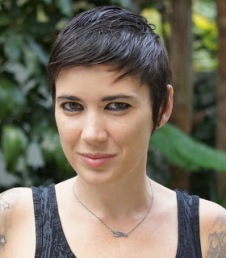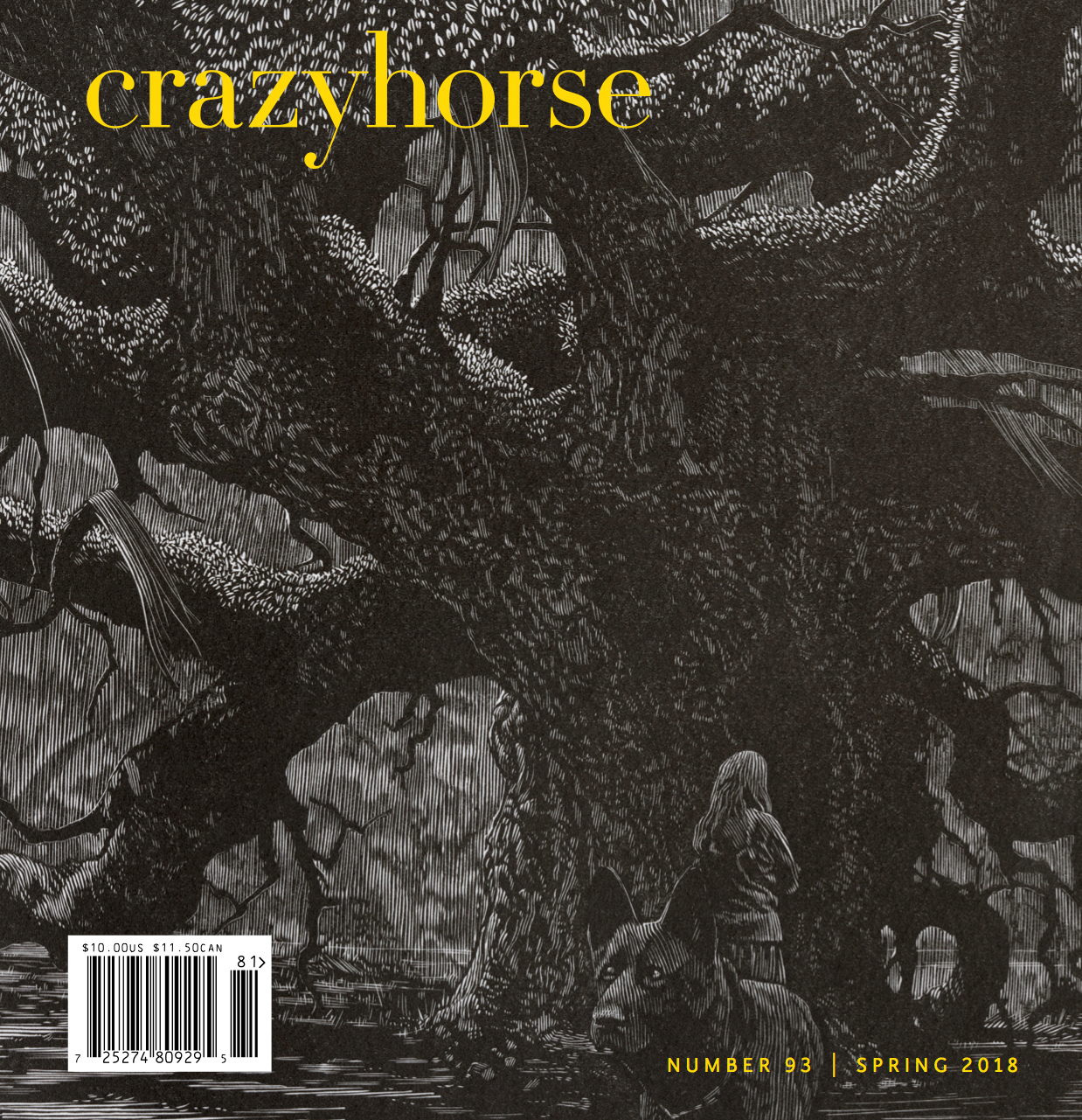
Steph Post is the author of the novels Lightwood and A Tree Born Crooked.
Steph Post is the author of the novels Lightwood and A Tree Born Crooked. She is a recipient of the Patricia Cornwell Scholarship for creative writing from Davidson College and the Vereen Bell writing award. Her fiction has appeared in the anthology Stephen King’s Contemporary Classics and many other literary outlets. She has been nominated for a Pushcart Prize and was a finalist for The Big Moose Prize. She lives in St. Petersburg, Florida.
To read an excerpt from Post’s story Lightwood and an exercise on creating villains, click here.
In this interview, Post discusses how story cannot be separated from point of view, the moral center of her crime novel, and its villain based on a Pentecostal preacher Post knew as a child.
Michael Noll
This is a crime novel, and one of the genres that closely associated with crime is the detective novel, which tends to have a single point of view that follows the detective. This novel, however, is told from many points of view, and I wonder how you found that structure. When did you know that the novel wouldn’t have a character that provided the central gravity of the story?
Steph Post
Lightwood was a novel comprised of many points of view from the very beginning. I write straight through, from first word to last on a first draft and so I switched points of view as a I wrote. When I write, I imagine the novel cinematically as if it were a film or a television show and the multiple point of view structure comes naturally. For me anyway, point of view is everything in story. A scene written from Judah’s point of view is going to be very different from one written in Ramey’s, even if they are in the same room, trying to accomplish the same objective. Point of view gives you insight into a character’s thought process, but also provides a lens for which to view the different characters. Sister Tulah is a different character when viewed from Brother Felton’s eyes as opposed to Jack O’ Lantern’s. I think not having one central character who anchors the point of view in Lightwood is a risk, but I believe the style fleshes the story out in a necessary way.
Michael Noll
Almost everyone in this novel is breaking the law. The characters who push back against the criminals (like Felton) are doing so out of an immediate concern for particular people and not some moral code. As the writer of this world, where do you look to find the moral or ethical center that holds it together?
Steph Post

Steph Post’s crime novel, Lightwood, tells the story of a released convict who, upon his release, must face his powerful family, a vicious Pentecostal con artist, and a biker gang.
I think the moral center comes in the form of the personal responsibility each character feels and how they act on that sense of responsibility. Most of the characters are thrown into situations that immediately force them to make complicated and, yes, usually unlawful decisions. Some of the characters, like Sister Tulah and Sherwood Cannon, are acting out of deliberate malice and this makes them the obvious villains. Others, like Judah and Ramey, are making choices which come with various degrees of consequence. They are guided by an ethical code that extends to their families and those they care about, even if this hurts outsiders to some degree. And I’ve always felt that Ramey is the moral compass of the novel. While she may not always be following the law, she does have her head more on her shoulders than anyone else.
Michael Noll
You’ve written a great villain—Sister Tulah—a con artist and preacher, and what I found so interesting about her is that her sermons are clearly designed to manipulate her followers, but she also seems to believe them in a way, and we get long descriptions of them. What inspired this character?
Steph Post
Sister Tulah is loosely based off of a real Pentecostal preacher I knew growing up. While I was not raised Pentecostal, my mother was and so I was aware of and fascinated by Pentacostalism. Most followers of charismatic religions believe in their faith to a degree that may be hard for outsiders to fathom. Sister Tulah, while obviously evil and clearly manipulative, believes in the force behind her religion. She is hypocritical, yes, but she also believes very much in the power she holds and that it comes as a divine right to her. Sister Tulah is so much fun to write because of her extremes and in the sequel—due out next year—I really explore where she comes from and what makes her tick.
Michael Noll
In Chapter 10, you change up your chapter structure and begin with a series of paragraphs that tells us what different characters see when they wake. Was this opening created out of a particular narrative need at that point in the novel? What inspired you to change the structure like that?
Steph Post
The opening of chapter 10 serves to give the reader a moment to breathe—Lightwood is a very fast novel—and also to take stock of where all of the characters are, both physical and mentally. I like the idea of all of the characters waking up on the same day, perhaps even at the same moment, but with very different experiences ahead of them. The characters of Lightwood are so tangled up in one another and I wanted to take a pause to see them all individually. Chapter 10 marks an important turning point in the plot that changes the outcome of the story for all the characters as well, and I wanted to make it clear, especially for Judah Cannon, that his life would no longer be the same after.
January 2017





Leave a comment